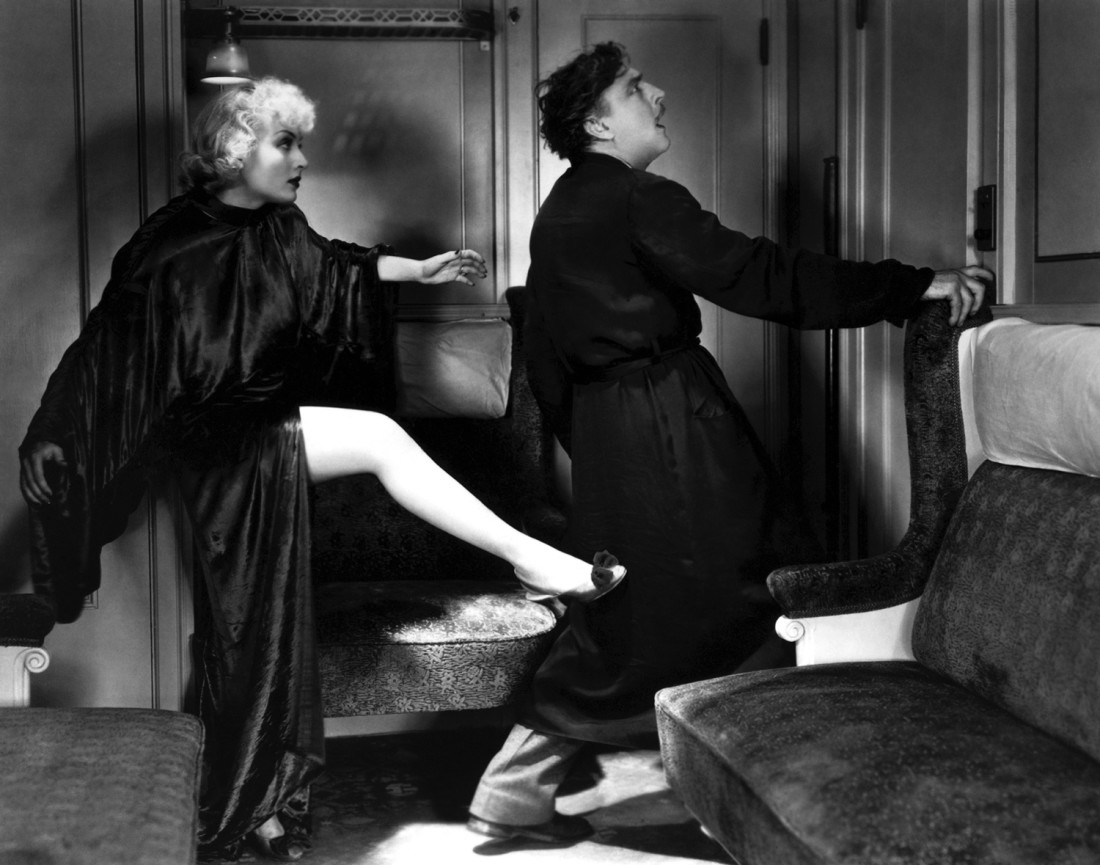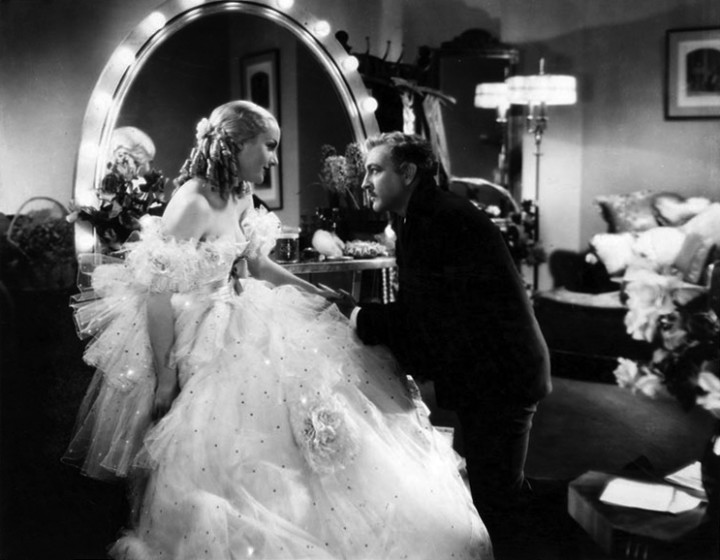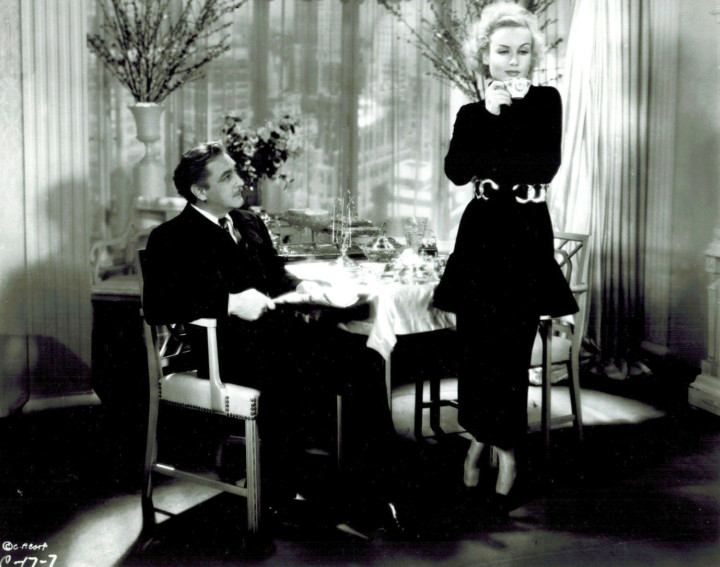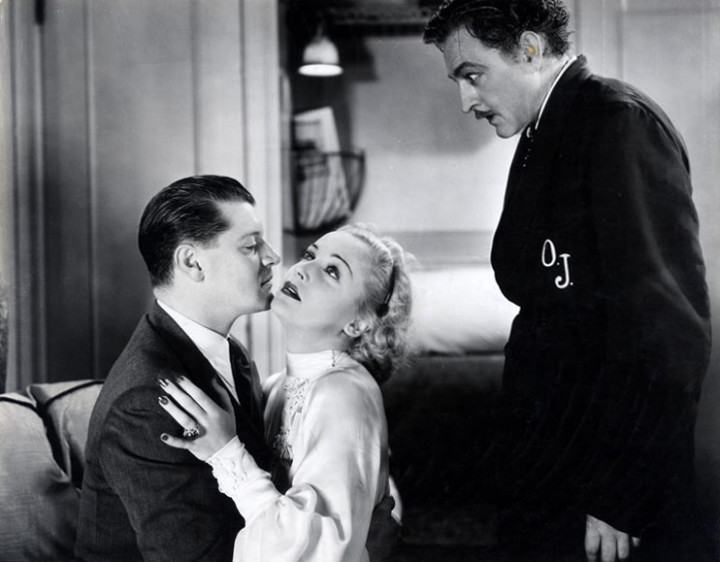The story concerns the “wizard of Broadway,” Oscar Jaffe (Barrymore), who must be a wizard indeed from the looks of the plays he stages. We see a poster for something called Bride of Bagdad, and there are references to a disastrous production of Joan of Arc, but most of what we see rehearsed consists of romantic melodramas of the Old South (“y’all” and variants rule the dialogue, while servants named “Uncle Remus” are common) that it’s quite impossible to imagine anyone sitting through. Wizardry can be the only explanation. It’s something like that—with the help of chalk and a hatpin—that allows him to turn Mildred Plotke (Lombard) into Lily Garland, the toast of Broadway.
The problem is that the two have become romantically involved and Jaffe is a control freak of some note with a propensity for (seemingly unwarranted) jealousy. Not surprisingly, this causes problems—problems that ultimately lead to Lily deserting him for a Hollywood contract, an event that changes Jaffe’s fortunes very much for the worse. A glimmer of hope appears when the two happen to cross paths on the titular train. Is it perhaps possible—as Jaffe’s press agent (Roscoe Karns) puts it—that “Mr. Bromo could get back again with Miss Seltzer?”
Detailing the plot does nothing to actually describe what makes Twentieth Century funny. The only way to really understand that is to see it, to experience it. It’s not just any single element that makes it work. It’s the way a script bristling with clever lines and situations is brought to life by skillful direction and acting. It’s actually seeing John Barrymore do an impression of a camel. It’s witnessing Barrymore’s no-holds-barred approach to the innate theatricality of his character. Both Jaffe and Lily are so much of the theater that everything they say and do is colored by it. They don’t have conversations and encounters, they play scenes—even adjust the lighting and make sure they have the right props for maximum effect. More to the point, they both obviously know it. Neither is fooled by Jaffe’s “attempt” to throw himself out of a window (“New York — it received me once when I came here a little farm boy…it will receive me again”), while an invitation from Jaffe for Lily to hit him is framed to show his defensive fist if she takes him up on it. And it’s experiencing the electrifying chemistry between the two performers. Neither was quite this good before, nor would they be quite this good again. Try the film for yourself. I’ve seen it theatrically at least five times—and only once did I see the audience that didn’t end up loving the film. (I blame the audience and the fact that the volume was too loud.) There really aren’t all that many chances to go to the movies and have this much fun.






Before you comment
The comments section is here to provide a platform for civil dialogue on the issues we face together as a local community. Xpress is committed to offering this platform for all voices, but when the tone of the discussion gets nasty or strays off topic, we believe many people choose not to participate. Xpress editors are determined to moderate comments to ensure a constructive interchange is maintained. All comments judged not to be in keeping with the spirit of civil discourse will be removed and repeat violators will be banned. See here for our terms of service. Thank you for being part of this effort to promote respectful discussion.